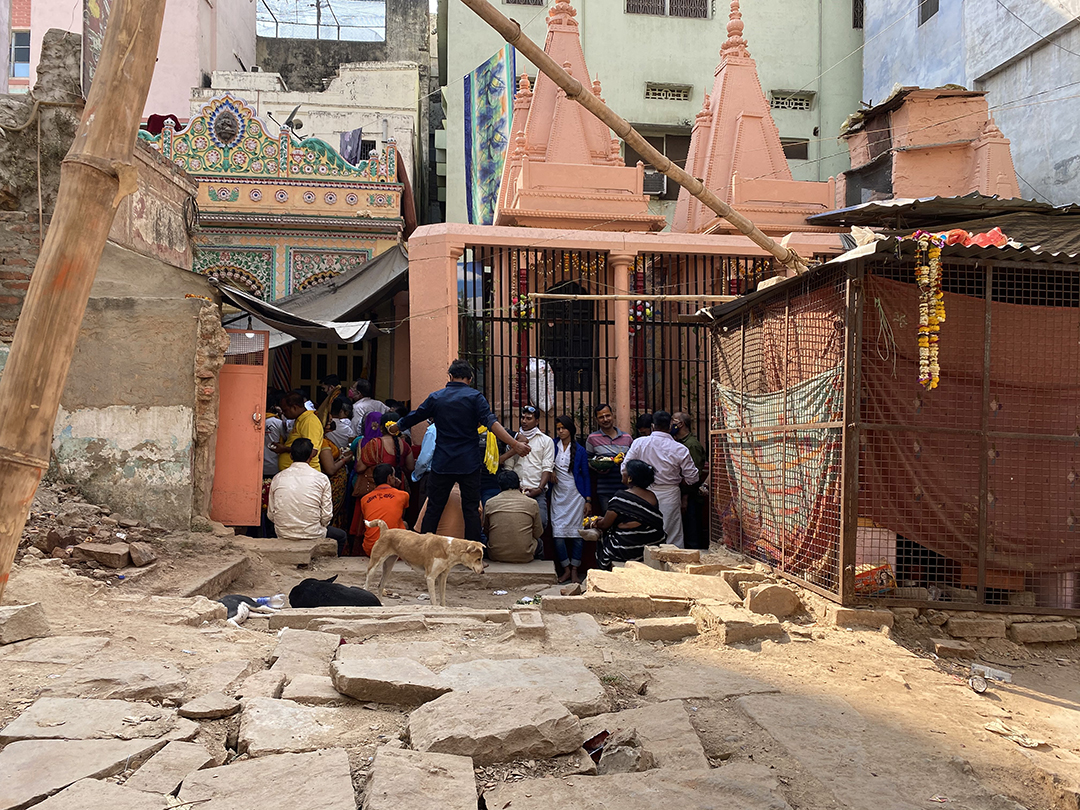Inclusive Design and Accessibility of the Built Environment in Varanasi, India
AT2030 is pleased to publish this second case study as part of the Inclusive Infrastructure programme. It is the second of six case studies analysing the state of accessibility and inclusive design in low-resource contexts around the world. The six independent case studies will then be analysed to develop a comparison report and finally a global action report that will offer evidence and recommendations that support making infrastructure, the built environment and urban development in low-resource settings more accessible and inclusive.
This purpose of this most recent case study is to explore the state of inclusive and accessible environments for persons with disabilities in Varanasi, India, through engagement with policy, industry and community stakeholders (policy, practice and people). Through this engagement, the case study is developing evidence on the challenges and opportunities for implementing inclusive and accessible design in Varanasi and makes recommendations on local actions towards becoming a more inclusive city.

Across the Asia-Pacific region, urban economic growth has not been equal and the urban poor carry this burden. This region already houses over half the world’s urban population and its urbanisation is only increasing. Major inequalities in access to housing, infrastructure and services, and affordable transportation are found across cities in Asia and the Pacific. These inequalities in urban development, disproportionately affect persons with disabilities and these case studies will contextualise the lives of persons with disabilities across Asia and Africa through research on inclusion and accessibility in the built environment.
According to UNESCAP there are 650 million persons with disabilities in the Asia Pacific region. At a regional level, the Incheon Strategy ‘to make it real for Persons with Disabilities’ (2012) is an agreed set of disability-inclusive development goals for the Asia-Pacific region, the first of its kind, offering opportunities for the region to be exemplar in disability inclusive development. India has made progress on its commitments to the Incheon Strategy through improving legislation, both antidiscrimination laws and accessibility policies and through national campaigns (the Accessible India Campaign). However, implementation challenges are an issue, such as a lack of an accountability mechanism for budget allocations. India has had legislation on disability inclusion since 1995 and the current legislation (Rights of Persons with Disabilities Act) was introduced in 2016. This law, and supporting policies protect the rights, opportunities, access and participation of persons with disabilities. The Union Minister of Social Justice & Empowerment announced during a review meeting organized by UNESCAP in November 2017 that India is committed to the principle of unity in diversity and the goal of inclusive development encompassing all segments of society including persons with disabilities.
India’s population is growing rapidly and becoming more urban. In 2011 there were 7933 towns and cities in India with 31% of the country’s population and two thirds of its economic output in urban areas. Rapid urbanisation has created wide disparities across the country, which will likely increase as according to NIUA currently only a few states are undertaking urban-rural transformation. Cities are a major focus of the Indian government for improving quality of life through the ‘Smart City Mission’ which aims to create 100 smart cities across India, including Varanasi.
Varanasi is classified as a Tier II city in India, smaller than cities such as Delhi or Mumbai, but it is the 30th most populous city in India according to the 2011 census. However, it has huge historical and cultural significance. The city is also surrounded by a large peri-urban area with villages that rely on Varanasi to access services. It is described as a complex city that blends ‘old and new, stability and change, industry and agriculture, and business and spirituality’. The city is also a popular destination for pilgrims and tourists to visit, creating a fluctuating population.
This case study builds a picture of the current state of inclusion and accessibility in the built environment and infrastructure in Varanasi through engaging local stakeholders and communities and exploring the understanding of and potential for inclusive design to address some of the current barriers to inclusion.
For any additional information about the case study, please contact Mikaela Patrick (mikaela.patrick@ucl.ac.uk)
Find out more about the Inclusive Infrastructure subprogramme here.